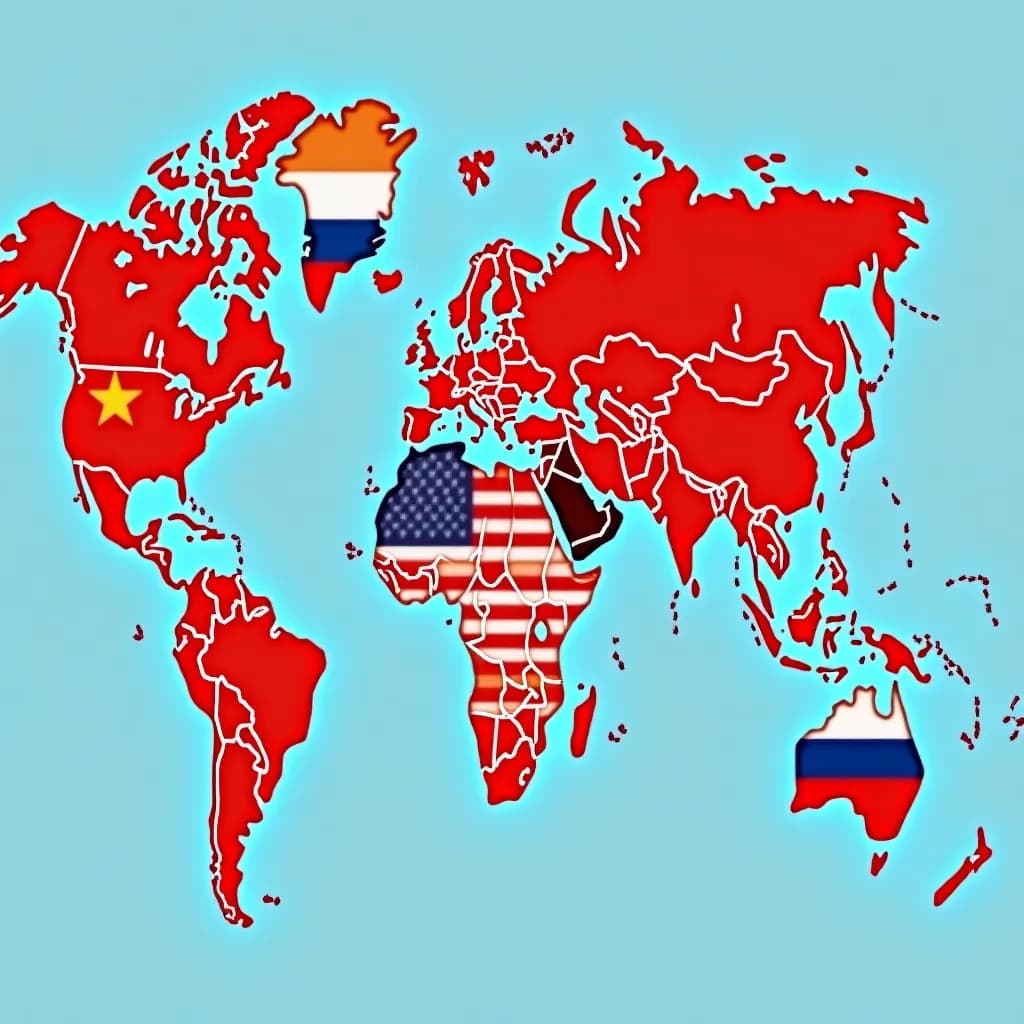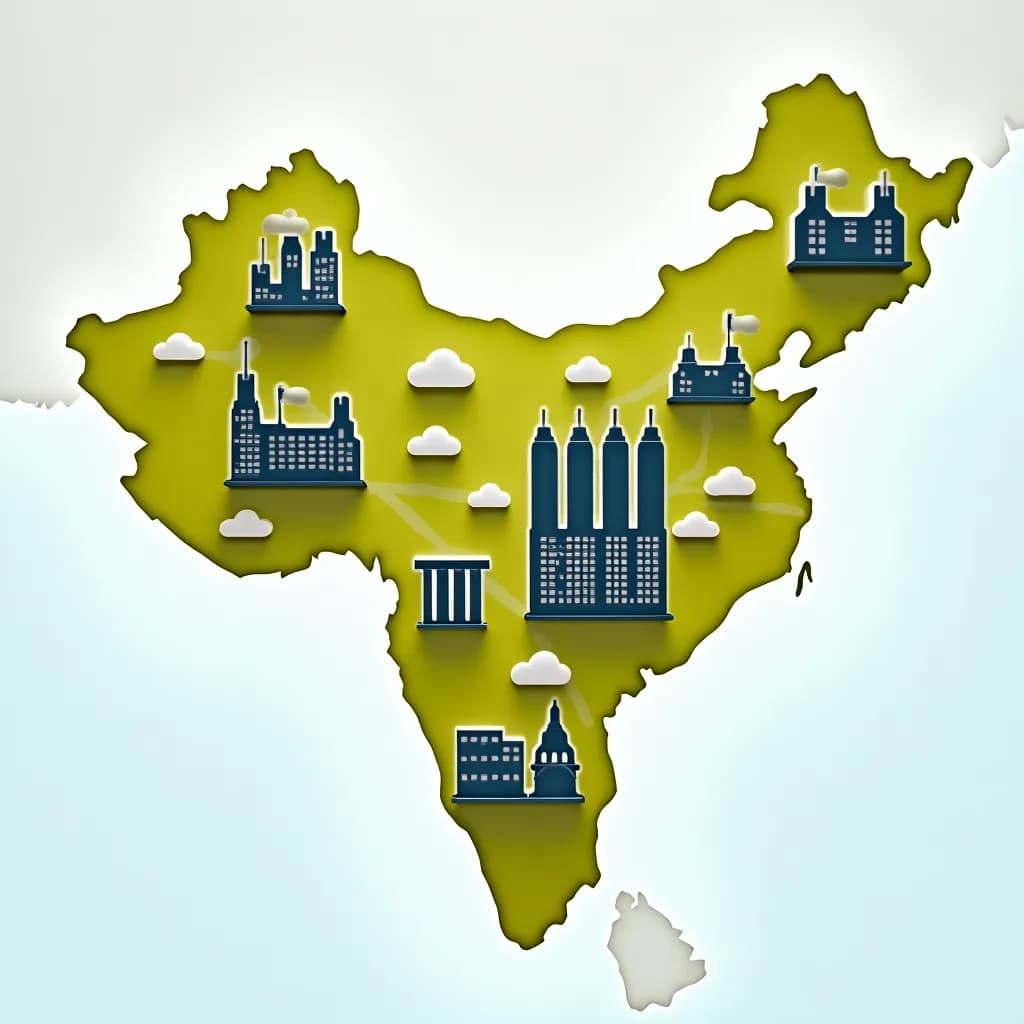The global political landscape has undergone significant transformations over the past few decades. As the world shifts from a unipolar order dominated by the United States to a more multipolar system, new challenges and opportunities emerge in international relationships. Understanding these dynamics is crucial for policymakers, businesses, and citizens worldwide.
A Shift Towards Multipolarity
Historically, the post-Cold War era was characterized by the United States' dominance, both economically and militarily. However, the rise of countries such as China, India, and the resurgence of Russia have challenged this dominance, leading to a more multipolar world. According to a report by the International Monetary Fund (IMF), China is projected to surpass the United States as the world’s largest economy by 2030, highlighting the shift in economic power.
- China’s Economic Influence: With the Belt and Road Initiative, China has expanded its influence across Asia, Africa, and Europe, investing billions in infrastructure projects and creating new trade routes.
- India’s Growing Role: As the world's largest democracy, India is increasing its global presence through economic reforms and strategic partnerships, notably with the United States and Japan.
- Russia’s Strategic Maneuvers: Despite facing economic sanctions, Russia remains a key player in global energy markets and military engagements, particularly in the Middle East.
These developments signify a shift in global power dynamics, where multiple nations hold significant influence, making international relationships more complex.
The Impact on Global Governance
The transition to a multipolar world affects global governance structures, such as the United Nations, World Trade Organization, and other multilateral institutions. These organizations often struggle to adapt to the changing power dynamics, leading to inefficiencies and disagreements among member states.
For instance, the United Nations Security Council, which reflects the post-World War II order, faces calls for reform to include emerging powers like India, Brazil, and South Africa. Such changes are necessary to ensure that global governance remains relevant and effective.
Furthermore, the rise of regional organizations, such as the European Union, the African Union, and the Association of Southeast Asian Nations, underscores the importance of regional cooperation in addressing global challenges, from climate change to economic inequality.
Challenges in International Diplomacy
The multipolar world presents unique challenges for international diplomacy. With multiple influential actors, achieving consensus on global issues becomes increasingly difficult. The following are some critical areas where diplomacy is being tested:
- Trade and Economic Relations: Trade wars, such as those between the U.S. and China, highlight the tensions in global economic relations. Countries must navigate complex trade agreements and tariffs while protecting their economic interests.
- Climate Change: Despite the global consensus on the urgency of climate action, differences in priorities and responsibilities among nations hinder progress. For example, debates over financial contributions and emissions targets continue to stall global agreements.
- Security and Conflict: Regional conflicts, such as those in Syria and Ukraine, demonstrate the challenges of maintaining global peace and security in a multipolar world. The involvement of multiple powers with varied interests complicates conflict resolution efforts.
Opportunities for Collaboration
Despite the challenges, a multipolar world also offers opportunities for collaboration and innovation. Nations can leverage their unique strengths to address global issues collectively. For instance, the Paris Agreement on climate change showcases how countries can come together to tackle a common threat, despite their differences.
Additionally, technological advancements and globalization foster increased connectivity and communication across borders, facilitating international collaboration. Initiatives such as the Global Vaccine Alliance demonstrate the potential for collaborative efforts to address public health crises.
Conclusion
The transition to a multipolar world presents both challenges and opportunities in international relationships. As power dynamics evolve, nations must adapt to new realities, ensuring that global governance remains effective and inclusive. By fostering diplomacy, collaboration, and innovation, the international community can navigate the complexities of a multipolar world and work towards a more stable and prosperous future.
Understanding these dynamics is crucial for policymakers, businesses, and citizens worldwide to navigate the complexities and harness the opportunities that arise in this rapidly changing global landscape.










